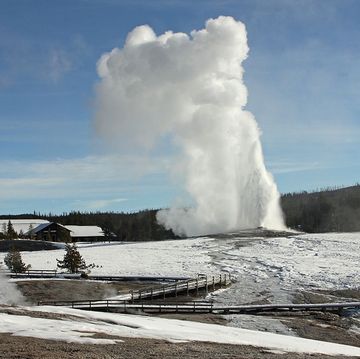British Thermal Units (BTUs)
A measure of how much energy the grill can muster in an hour. More heat means quicker cooking and juicier results. Look for at least 12,000 BTUs per burner.
Material
Stainless steel is the gold standard, but it's not all created equal. Look for grade 304 stainless, not the cheaper grade 430, which rusts. A magnet will stick to 430, but not to 304.
Cooking Area
Professional caterers and frequent party hosts need at least 1,000 square inches to keep the burger lines short. If you're cooking for your family or a small group of friends, 600 to 900 should suffice.
Gas vs. charcoal—which should you buy?
Different grills suit different grillers. “You should choose a grill according to your lifestyle,” says Adam Perry Lang, author of BBQ 25. “Whether you choose gas or charcoal, you should spend as much as you can afford, looking for a few key things.” Use this guide to help you decide.
Gas grills
Best for: The working man who wants a grilled meal on the quick after work; the guy who keeps his occasional grilling strictly to burgers and dogs
Benefits: Fast to heat, easy to clean, no mess from charcoal
Drawbacks: Doesn’t smoke barbecue as well as charcoal, lack of charcoal flavor
How to buy: “BTUs are less important than the surface area of your heat,” Lang says. Gas grills with one flame-emitting bar don’t provide enough heat to evenly caramelize your food. Look for a grill with several heat sources or, better yet, lava rocks, which mimic charcoal in heat distribution.
Charcoal grills
Best for: The more serious griller with more time to burn; a disciple of the art of low and slow barbecue
Benefits: Full-bodied charcoal flavor, cooking with an open flame, perfect for smoking
Drawbacks: Takes longer to heat, more clean up
How to buy: Don’t skimp. Look for a charcoal grill with cast iron grill gates—they’re better heat conductors than stainless steel grill rods, says Lang. And make sure the surface area is large enough to accommodate the big cuts of meat, like ribs and brisket, that are integral to barbecue.
Grate
Stainless steel is easy to clean and produces the most intense heat and the most pronounced grill marks, a sign of rich flavor caused by caramelization. Also good: cast iron. The thicker the better.
Thermometer
A built-in temperature gauge keeps you from opening the lid every few minutes, which releases precious heat. Make sure it's positioned in the middle of the grill, or readings could be inaccurate.













